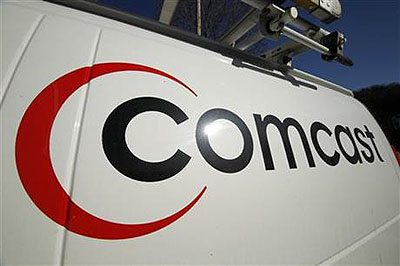Things that make you go “hmmm”:
Apple Inc. is in talks with Comcast Corp. about teaming up for a streaming-television service that would use an Apple set-top box and get special treatment on Comcast’s cables to ensure it bypasses congestion on the Web, people familiar with the matter say.
….Under the plan Apple proposed to Comcast, Apple’s video streams would be treated as a “managed service” traveling in Internet protocol format—similar to cable video-on-demand or phone service. Those services travel on a special portion of the cable pipe that is separate from the more congested portion reserved for public Internet access.
People familiar with the matter said that while Apple would like a separate “flow” for its video traffic, it isn’t asking for its traffic to be prioritized over other Internet-based services.
Making video-on-demand operate properly requires careful engineering. It doesn’t work if you just dump it out on the public internet and call it a day. However, that careful engineering costs money, and it’s not unfair for companies to  demand reasonable compensation of some sort if they’re the ones who bear the costs.
demand reasonable compensation of some sort if they’re the ones who bear the costs.
But who decides what’s reasonable and what isn’t? In a competitive market, the market eventually decides. Price signals and competition do the heavy lifting with only light government regulation to set a level playing field and police the worst abuses. But when companies like Comcast have effective monopoly control over internet access in their territories, who decides then? There are no market forces to rely on, which means that Comcast gets to decide unilaterally. So, for example, when Netflix finally agrees to pay a fee to Comcast for delivery of its video content, the quality of Netflix transmissions miraculously goes up almost instantly. Apparently there were no infrastructure issues at all and no special buildout costs. It was just a matter of Comcast extorting some extra revenue from Netflix.
The Apple case is different in the details, but it raises the same basic principle: Who decides? Who gets special access to Comcast’s customer base? Who gets shut out? The market can’t provide any guidance because Comcast has little genuine competition in this space.
So who decides?
















